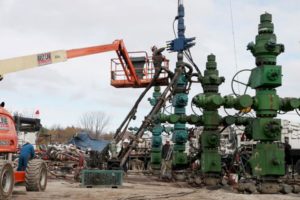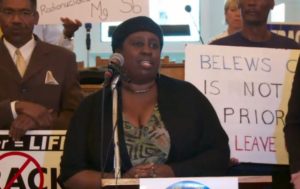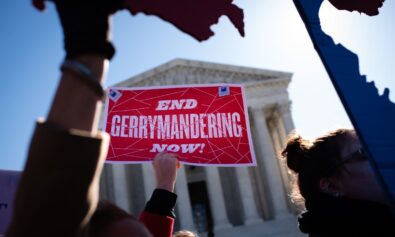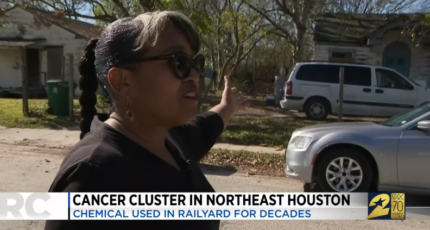
Civil rights advocates from the local, state and national levels are answering the calls from concerned citizens in the town of Walnut Cove after it was revealed that one of the town’s few predominantly Black communities would be the site of core hole drilling in an attempt to assess what shale-gas resources may lie in the Dan River basin.
While tapping into such resources could be a profitable endeavor, the community’s residents are tired of having their health and safety being traded in for selfish economic gains.
“The community is saying, ‘We are going to value more than just short-term, inequitable monetary gain … it’s really about air and water and soil and land,’” Karenna Gore, the daughter of former Vice President Al Gore and director of the Center for Earth Ethic at Union Theological Seminary, told the Winston-Salem Journal.
NAACP officials announced their investigation earlier this week at the Rising Star Baptist Church but added that they wish they didn’t even have to answer such a troubling call.
Jacqui Patterson, director of the NAACP Environmental and Climate Justice Program, based in Baltimore, expressed that putting people’s health at risk for a financial return is clearly a “moral issue” and while it is unfortunate that such an ethical dilemma has presented itself to the people of Walnut Cove, she is looking forward to investigating the matter in order to “bring justice around this issue of coal ash and about fracking and about the injustices of these industries that operate without any regard for the human rights of the people who are impacted by this pollution.”
What the controversial project is gambling in return for a possible monetary reward, is the quality of air in the community and even the lives of citizens in the area as it is still unclear if the injection of wastewater will cause earth tremors and quakes.
For the residents, it’s a risk they aren’t willing to take.
“If the foundations of our homes start to crack, we lose everything we’ve worked hard for,” one resident, Lydia Prysock, told the Winston-Salem Journal.
Experts, however, are insisting that there still isn’t strong evidence that the project will cause any earthquakes and believe the project won’t be putting any locals at risk.
But that’s an empty promise that has been delivered to predominantly Black communities in the past.
The disproportionate number of predominantly Black neighborhoods being impacted by environmental injustices has been thoroughly noted and researched.
It’s a part of the reason why Black children are often left battling serious problems with asthma as highways are built across their communities and environmentally unsafe factories and other infrastructure are constantly popping up in their backyards.
Even the now infamous Keystone XL proposal had a disproportionate impact on low-income, Black communities, and experts warned that none of the profits or jobs from the expensive project would even be seen in the neighborhoods left carrying the environmentally hazardous burden of the pipeline.
It is likely that the NAACP’s investigation will heed the same results that other researchers have uncovered in the past, but the organization’s real test will be what they do about the fact that Black communities — which are already being stripped of jobs, economic opportunity, educational equality and a general sense of safety — are also being stripped of their access to clean air and a safe environment.



